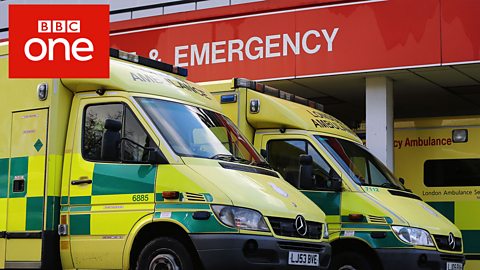Meet Sarah, 24, a critical care staff nurse in Cardiff. Part of our Bitesize world of work series.
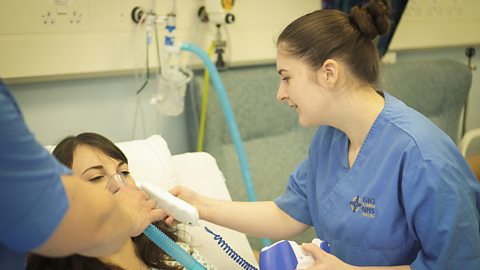
What is your job?
In critical care you look after the patients who need the most amount of care out of all other patients in the hospital. They may have suffered organ failure, where they might need extra machines to keep them alive. Shifts are 12.5 hours a day.
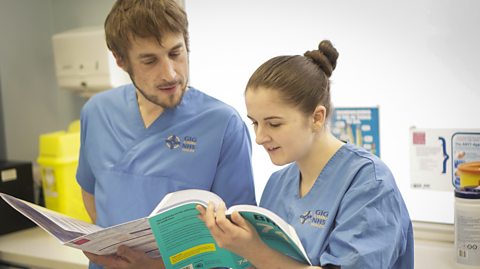
What are your day-to-day tasks?
You’ve got basic patient care, making sure they are washed, their nutritional needs are met and that they are hydrated. You check the patient's observations – this includes their blood pressure, heart rate, respiratory rate, temperature and some people may need their blood sugar checked. If you notice a deterioration, you report it to the nurse in charge or the doctors.
What skills do you use in your work?
Time management is probably one of the most important things. If you’ve got a lot of patients, you’ve got to prioritise tasks for each patient. Communication and team work are also important. For example, if you have to roll someone on a ventilator you need three people working together. You are taught to work in pairs – some tasks need to be double-checked for safety.
What subjects did you study at school?
I needed a C in English, Maths and Science. I did Additional Science as it was my favourite subject. After GCSEs I went to college. I did AS Biology, because I knew that would help with nursing. I wasn’t too good on the written exams – I was better at practical tests, so I transferred to BTEC Science alongside Psychology and Religious Studies A-level. I also did the Welsh Baccalaureate and achieved the equivalent to an A-level. I applied to university but, unfortunately, I didn't get through the first time. I tried again and got an offer to study Adult Nursing.
Is this the job you always knew you wanted to do?
It was always nursing or teaching. Originally, I wanted to do child nursing, but with working in a care home and other experiences I changed to adult care. I have wanted to do nursing for 15 years.


Top tips
If nursing is what you want to do, go for it. It’s not going to be easy, but if it’s what you want to do, you can do it
Keeping calm is an important skill, which comes with experience. If you panic, you're not going to think clearly.

What to expect if you want to be a nurse
- Nurse average salary: NHS bands 5-6. Read more about . Salaries will differ in private healthcare.
- Nurse typical working hours: 37 to 42 hours per week
What qualifications do you need to be a nurse?
You can get into this role via a university course. You can do a degree in adult nursing approved by the Nursing & Midwifery Council. Some degree courses let you study another area of nursing alongside adult nursing. You may be able to join the second year of a nursing degree if you already have a degree in:
- a health-related subject
- psychology
- life sciences
- social work
Full-time courses usually take 3 years. You may be able to do a degree apprenticeship in nursing if you work in a healthcare setting like a hospital. The apprenticeship takes around 4 years and is a mix of academic study and on-the-job training.
Sources: LMI for All, National Careers Service, NHS Health Careers
This information is a guide and is constantly changing. Please check the website for the latest information and all the qualifications needed.
Find out more
For more information about careers in nursing, you can check out:
- The
- The
For careers advice in all parts of the UK visit: , , and .

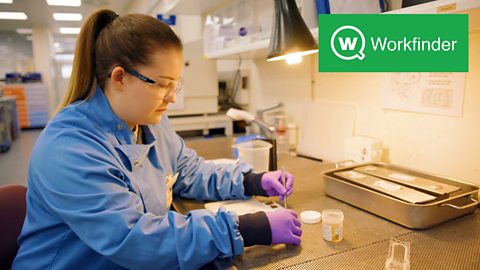
Find work experience placements with Workfinder.
Tips and advice
Help with interviews, writing a CV and all things work experience related.


How to become a nurse. collection
A collection of nurse job profiles and information about what the role entails.
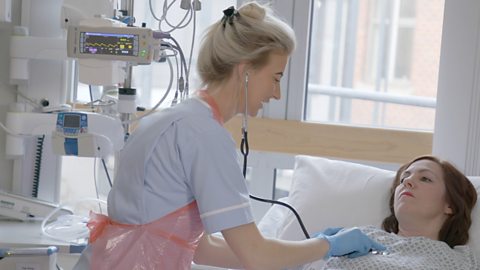
Job inspiration: Careers in healthcare and frontline services. collection
Hear from people working across the healthcare sector and in frontline services, including some roles you may not know existed!
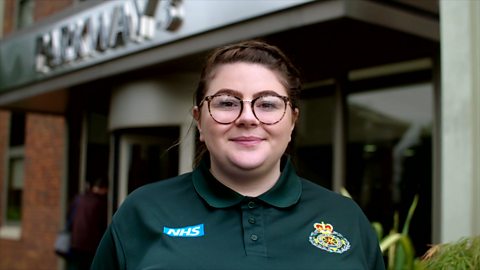
іЙИЛїмКЦ One's Ambulance: Meet the real life heroes. collection
A collection of articles and stories from іЙИЛїмКЦ One's series Ambulance.
